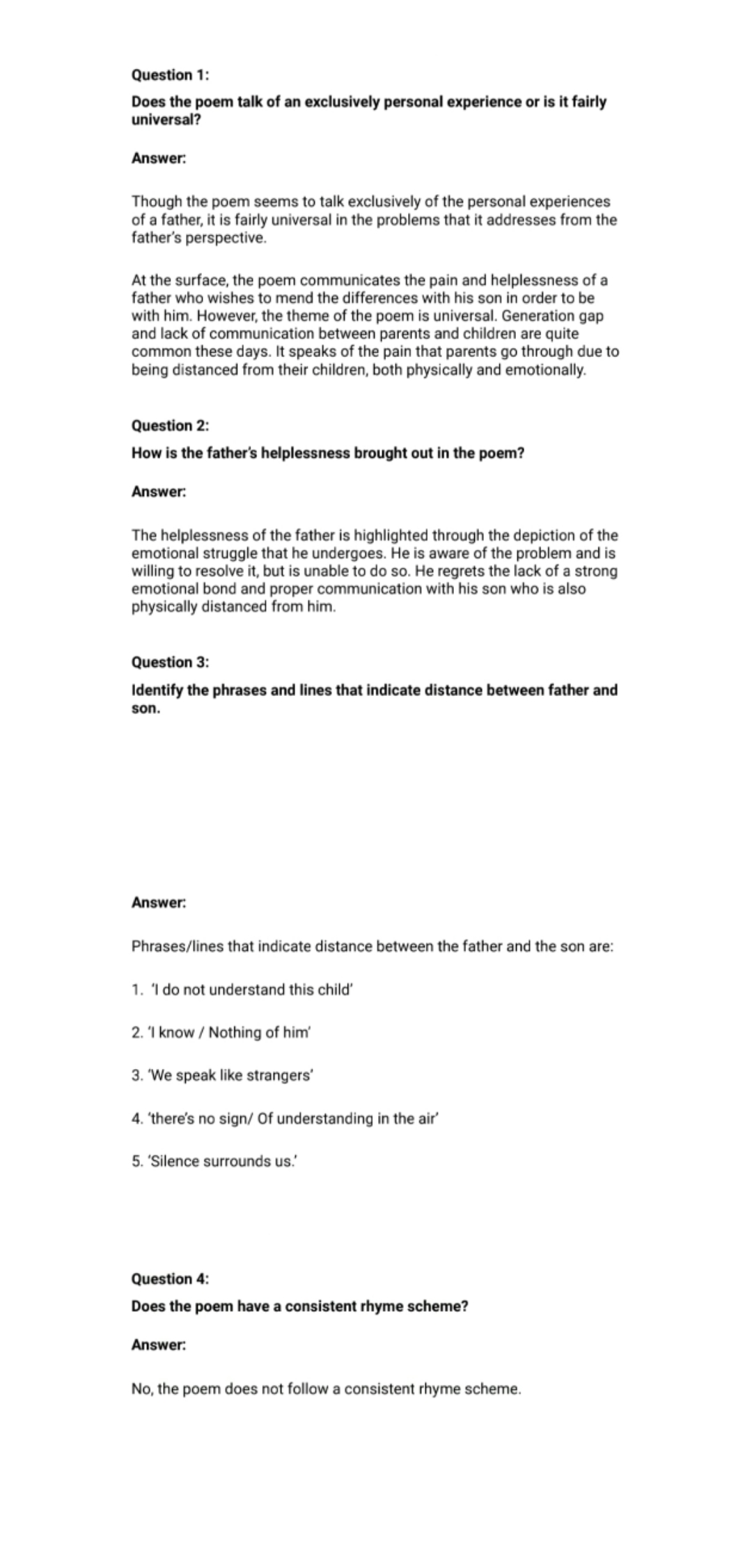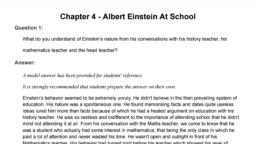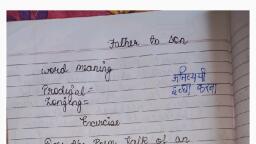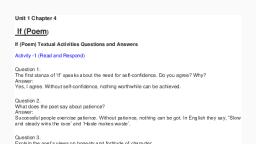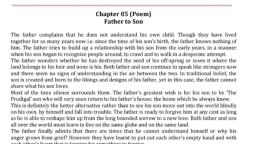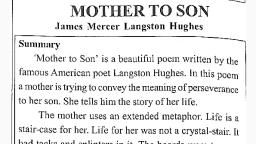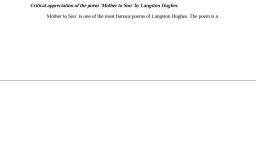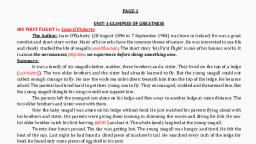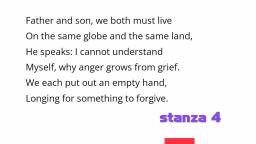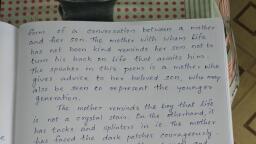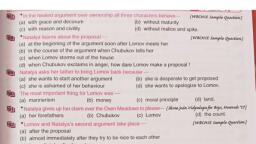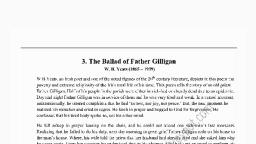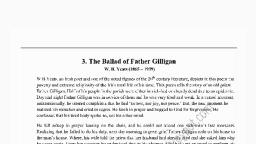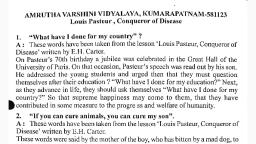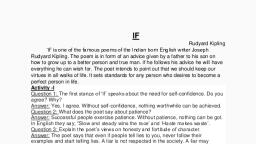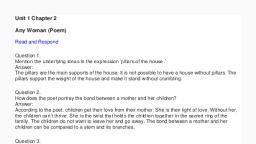Page 1 :
Question 1:, , Does the poem talk of an exclusively personal experience or is it fairly, universal?, , Answer:, , Though the poem seems to talk exclusively of the personal experiences, of a father, it is fairly universal in the problems that it addresses from the, father’s perspective., , At the surface, the poem communicates the pain and helplessness of a, father who wishes to mend the differences with his son in order to be, with him. However, the theme of the poem is universal. Generation gap, and lack of communication between parents and children are quite, common these days. It speaks of the pain that parents go through due to, being distanced from their children, both physically and emotionally., , Question 2:, How is the father’s helplessness brought out in the poem?, , Answer:, , The helplessness of the father is highlighted through the depiction of the, emotional struggle that he undergoes. He is aware of the problem and is, willing to resolve it, but is unable to do so. He regrets the lack of a strong, emotional bond and proper communication with his son who is also, physically distanced from him., , Question 3:, Identify the phrases and lines that indicate distance between father and, son., , Answer:, , Phrases/lines that indicate distance between the father and the son are:, 1. ‘Ido not understand this child’, , 2. ‘I know / Nothing of him’, , 3. ‘We speak like strangers’, , 4. ‘there's no sign/ Of understanding in the air’, , 5. ‘Silence surrounds us.’, , Question 4:, Does the poem have a consistent rhyme scheme?, , Answer:, , No, the poem does not follow a consistent rhyme scheme.
